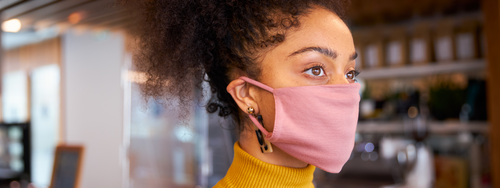Share:
In the wake of a global pandemic, the world is cautiously navigating a path to recovery, finding a delicate balance between returning to pre-pandemic norms and retaining the lessons learned from an unprecedented health crisis. Among these lessons, the practice of carrying and wearing masks has emerged as a symbol of our collective resilience and adaptability. This article delves into the compelling reasons why the habit of having a mask at hand remains not just prudent but essential for our ongoing journey towards a healthier, more considerate society.
The Shield Against Invisible Threats
Masks serve as a frontline defense against a multitude of respiratory illnesses, beyond COVID-19, including the flu, common colds, and other airborne pathogens. Scientific studies have consistently highlighted their efficacy in reducing the transmission of infectious particles. By choosing to carry a mask, individuals equip themselves with a simple yet powerful tool to mitigate the spread of diseases, especially in settings where the risk of airborne transmission is heightened.
A Gesture of Consideration and Community Spirit
The decision to wear a mask when around others embodies a commitment to communal health. In crowded spaces such as public transportation, concerts, and sports events, wearing a mask especially when sick, becomes an act of social responsibility—a tangible expression of our concern for the well-being of those around us. This practice underscores a collective ethos of prevention, fostering a culture where the health of the community is valued and protected.
Navigating Spaces with Vulnerable Populations
Healthcare settings, where the vulnerable and the sick converge, highlight the indispensable role of masks in safeguarding public health. In these environments, the presence of a mask can be a literal lifeline, reducing the risk of transmitting infections to those least able to bear them. Similarly, for individuals with compromised immune systems or pre-existing conditions, the choice by others to wear masks can significantly impact their ability to engage with the world more safely and confidently.
The All-Season Ally: Beyond Viruses
Masks have also proven its effectiveness against seasonal allergies, offering relief to those afflicted by pollen and other allergens. By acting as a barrier against irritants, masks enable millions to navigate their daily lives with reduced symptoms, exemplifying the versatile benefits of this simple protective measure.
Preparedness in an Uncertain World
In a world where change is the only constant, carrying a mask symbolizes preparedness and adaptability. It represents our ability to respond swiftly to emerging health advisories and to navigate the unpredictable terrain of global health with confidence. This readiness is not born of fear but of a forward-looking approach to personal and public health, emphasizing the importance of being equipped to protect yourself and those around you.
The Aspirational Path Forward
As we forge ahead, the continued practice of carrying masks stands as a testament to our collective growth through the challenges of the past. It reflects a societal shift towards greater health consciousness, a willingness to adapt for the common good, and an acknowledgment of our shared responsibility in shaping a healthier, more considerate world.
As we navigate the complexities of post-pandemic life, let us carry forward the lessons of resilience, care, and adaptability that mask-wearing has taught us. In doing so, we affirm our commitment to a future where public health is prioritized, where community well-being is a collective endeavor, and where each small act of consideration contributes to the greater good. The mask, once a symbol of a world in crisis, now serves as a badge of our shared aspiration for a healthier, more thoughtful society.
References
- World Health Organization (WHO) and Centers for Disease Control and Prevention (CDC) guidelines on mask usage in various contexts post-COVID.
- Studies on mask efficacy against respiratory illnesses published in reputable medical journals such as The Lancet, JAMA, or the New England Journal of Medicine.
- Research on psychological impacts of preparedness and community health initiatives from sources like the American Psychological Association.



